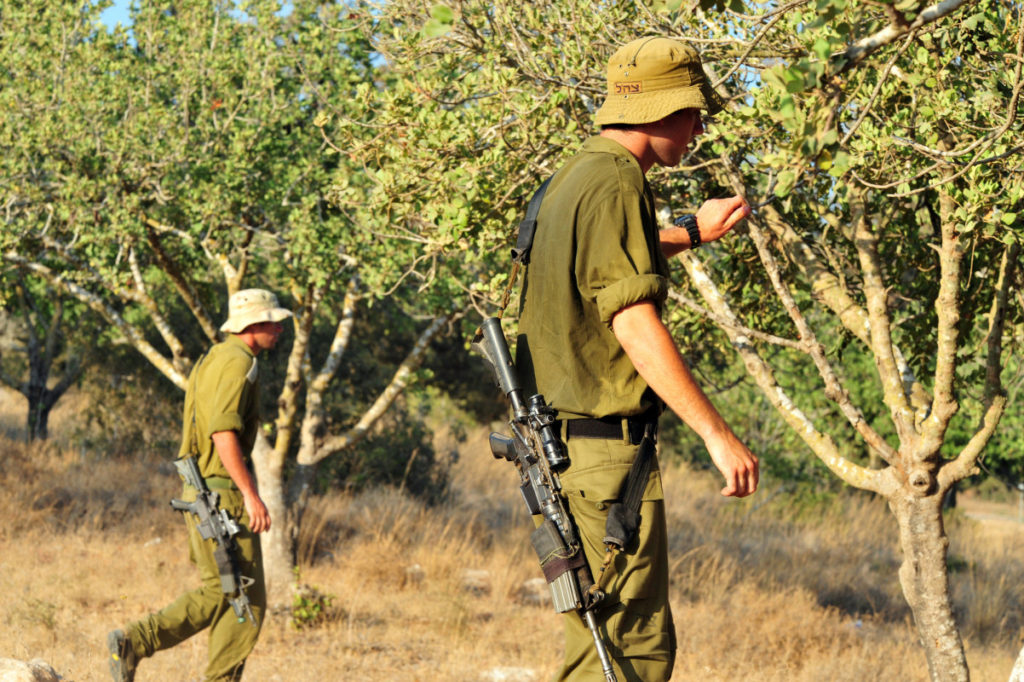
The state of Israel has a rich military tradition, starting with the birth of the nation in 1948. Since then, Israel has had to fight to defend and hold back the stem of attacks from its neighbors and their allies. Despite sustained and frequent attacks, the Israeli Defense Forces (IDF) have always held the line. Within the IDF there are many highly trained specialty units, and the Sayeret Matkal is one such unit.
This unit traces its heritage back to 1957 when the IDF set up a general staff reconnaissance unit. Soon after they would take on the name of Sayeret Matkal, becoming Israel’s premier special forces unit. This early unit was comprised of members from an array of military backgrounds and experiences, but they all made sure to maintain a high level of secrecy around their capabilities. The newly formed Sayeret Matkal would conduct its first operations in Lebanon in May of 1962, with much success. This mission was followed on by another successful one in Syria, establishing the unit as a viable and highly useful military reconnaissance force.
Over the coming years the Sayeret Matkal would continue to conduct reconnaissance and surveillance operations throughout the region, enabling other IDF units to successfully engage and neutralize enemy forces. The unit would then take on another role, that of counter-terrorism operations. In the late 1960s and into the 1970s, an increase in anti-Jewish and anti-Israeli sentiment spread, leading to several small and large terrorist attacks. The highest profile attack was the Munich Olympic Massacre, in which Israeli athletes were taken hostage and killed. These attacks would lead the Sayeret Matkal and other Israeli units to carry out reprisal killings to find and hold those accountable for the slaughter of those innocent people.
In 1973, the nation of Israel was once again under attack, this time during the Yom Kippur War, in which its neighbors, mainly Syria and Egypt, looked to regain territory lost in previous wars. Although they made progress in the early days, the IDF would ultimately outmaneuver and force its enemies to a ceasefire brokered by the USA and USSR. During this conflict, Sayeret Matkal did not have a clear tactical mission, and although they did participate in some of the fighting, its leadership decided the unit needed to have better war plans created and implemented to best utilize the unit in its intended strategic roles.
During the following periods of unrest and counter-terrorism operations, the Sayeret Matkal would be faced with its toughest mission yet. In 1976 the unit was tasked with recovering hostages who were being held by Palestinian and German terrorists, who were supported BY the military and government of Uganda. Operation Entebbe was a resounding success, as the Sayeret Matkal managed to infiltrate the Ugandan airport where the hostages were held, hold off the Ugandan military, eliminate the terrorists, with only the loss of three hostages and unit’s commander Lieutenant Colonel Yonatan Netanyahu.
Since then, the unit has consistently carried out counter-terrorism operations both in Israel and across the globe, always maintaining a very low profile. With respect to its modern operations, Sayeret Matkal continues to maintain an extremely tight grip on their operational log, making it difficult to truly understand the scope of their capabilities and missions. They have continued to participate and assist in direct action operations like the 1982 Lebanon War, the 2006 Second Lebanon War, and were likely the unit to gather the intelligence which later led to the bombing of a suspected Syrian nuclear reactor in 2007. The Sayeret Matkal continue to play a major role both within the IDF and Israeli society, as they are the eyes and ears of the state of Israel, which is always under constant threats.
